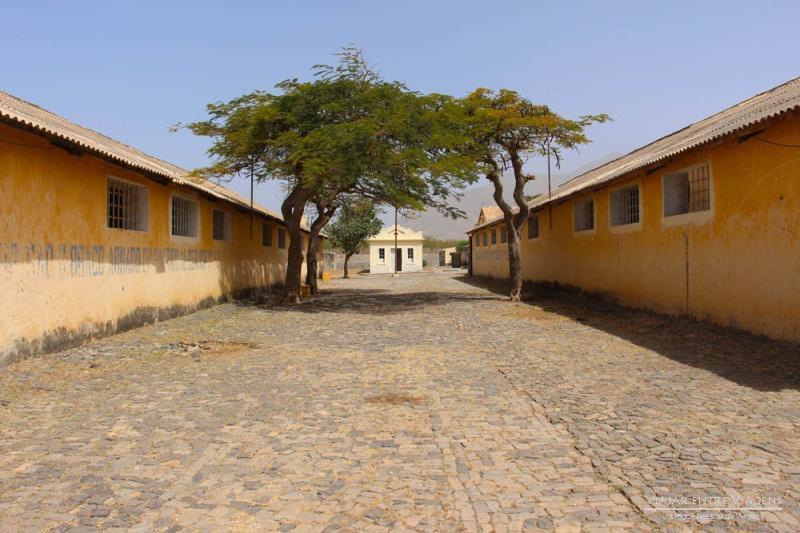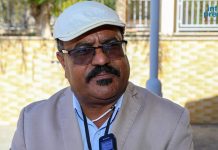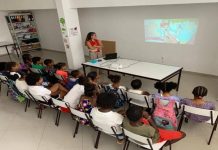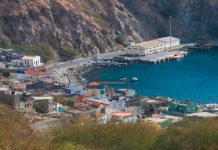Africa-Press – Cape verde. The spokesperson for political prisoners at the ceremony marking the 50th anniversary of the liberation of Tarrafal, in Cape Verde, says that there is a lack of care in preserving the concentration camp and that there are efforts “to erase the memory” of the liberation struggle.
Former Cape Verdean ambassador Luís Fonseca considers the celebration with the four countries (Angola, Cape Verde, Guinea-Bissau and Portugal) on May 1st, in the concentration camp, to be “excellent”, but says that, after the round dates, there has been no attention.
The former executive secretary of the Community of Portuguese Speaking Countries (CPLP), between 2004 and 2008, was even pronounced dead by the employee at the entrance to the Resistance Museum, the current name of the prison, the last time he visited the space.
“There is a sentimental reason for, from time to time, making this visit with my wife and daughter: she was born and, shortly afterwards, when she was able to travel, they went to Tarrafal so I could meet her”, he recalls, in an interview with Lusa.
The last family visit was in 2023.
“I turned to the young woman who was serving the public and asked her: have you ever heard of Luís Fonseca” and the answer was “no”.
He didn’t immediately identify himself, he explained that he was talking about one of the Cape Verdean political prisoners and what he heard next disturbed him: “She said: they’re all dead. And I said no, I’m one of them. She looked to me with a somewhat gullible air.”
“When one of the survivors goes to Tarrafal and is told that he is dead, it makes you laugh and it makes you think about the commitment that really exists to preserve the memory”, he says.
“This is a bit sad, but I think that, often, deliberately or not, there is an effort to erase the memory” of the liberation struggle, with a political motivation, he says.
“Memory is indispensable for the preservation of identity, but it can be uncomfortable and you will ask yourself: why? I don’t know the answer, I can only imagine”, he added, refusing to elaborate: “I imagine many things, I have to reflect more on the subject.”
Luís Fonseca is just a few days away from turning 80 and has made the same warning about the lack of attention to Tarrafal several times for years.
“Tarrafal is in fact a symbol of Portuguese fascism”, of the “denial of rights” and “there is a duty of memory towards the fighters who gave their lives for freedom”, meaning that the site “should not be forgotten by generations , because it represents the struggle of the people of four countries”.
Above all, he is disturbed by the reason for forgetting, “if it is in fact deliberate”, and “what is the risk of keeping the memory alive? How can it disturb projects, policies, plans? That is the question”.
An issue that addresses “everyone, society, the [Cape Verdean] Government, obviously, because it has the levers”, addressing all governments, from different parties since independence, which it says have not taken “strong measures towards this preservation”.
“There is a big flaw: there is no involvement of any of the former prisoners” in the creation of the museum.
“A self-respecting museum would take care to contact those who are alive and their heirs in order to collect souvenirs. I have some very interesting things”, says Luís Fonseca.
Works carved out of coconuts by political prisoners, drawings and paintings by Pedro Martins, the secret translation of Lenin’s “The State and the Revolution”, by Luís Fonseca himself, are some examples.
“Have they ever been interested? Never. Hence the question: what is the museum for, what is the objective? Is it just for tourist purposes, is it just to generate some income? It’s not something personal, but when I think about the consequences of this forgetfulness and, above all, , in motivations, then, I get a little worried”, he concluded.
The presidents of Cape Verde, José Maria Neves, Angola, João Lourenço, Guinea-Bissau, Umaro Sissoco Embaló, and Portugal, Marcelo Rebelo de Sousa, the four countries of origin of the prisoners, celebrate on Wednesday, May 1st, the 50 years since the liberation of Tarrafal — a memorial plaque marks the names of the 36 killed there by the Portuguese colonial dictatorship.
The majority, 32 dead, were Portuguese who challenged the fascist regime, imprisoned in the first phase of the camp, between 1936 and 1956.
It reopened in 1962 under the name Camp de Trabalho de Chão Bom, intended to incarcerate anti-colonialists from Angola, Guinea-Bissau and Cape Verde — two Angolans and two Guineans died.
In total, more than 500 people were imprisoned in the “slow death camp”.
For More News And Analysis About Cape verde Follow Africa-Press






